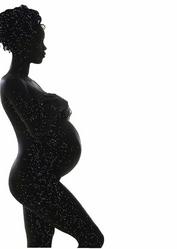E. Anthony Allen, Contributor

In recent months, we have had perhaps the widest expression of views possible on the issue of abortion. The leaders of our Government and opposition will eventually make a collective decision based on a conscience vote. Many are seeking to influence their hearts and minds.
Very likely, the majority of Christians in Jamaica would hold theologically that as soon as the sperm and egg containing the unique DNA of the respective parents combine to form the DNA of a third unique organism - then this organism, once implanted in the womb of the woman, is a human life. It is human life in the sense that if allowed sufficient conditions for survival in the womb, a human being would result.
The biggest dilemma surrounding the controversy of abortion is that of deciding between the welfare of the unborn human and that of the mother. This issue would not arise in an ideal world where every pregnancy was planned, wanted and safe, and where the delivered child could be adequately cared for in a functional family. Where this is not the case, there are five alternatives to decision making. This range of choices applies in most instances.
Various perspectives
First, from the 'non-intervention' perspective, no abortion is justifiable, even if the mother's life could be lost. Second, from the 'conservative medical intervention' perspective, abortion would be permissible only to save the life of the mother. Third, there is the perspective of medical intervention against death and disability. Here, intervention would be not only to save the mother's life, but also to prevent undue physical or mental suffering that would profoundly affect her quality of life on a sustained basis. The burden of proof of such suffering would come from a clinical examination by a physician. Situations such as pregnancy due to incest or rape could fall within this perspective.
In some cases, there would be the consideration of having to raise a child sufficiently severely handicapped and with poor enough prognosis to profoundly affect the quality of life of the mother.
Exceptional cases
Nevertheless, in all these situations there may be exceptional cases where the woman may desire the child and have unusual inner resources and social support, which could allow this decision to stand.
Fourth, there is the 'socially determined medical intervention' perspective. This would allow abortion based on personal hardship because of the lack of adequate material and social resources to cope with mothering a child. As well, the woman may not be emotionally ready, as in the case of someone in her early teens
Fifth is the 'right to demand' perspective. Here, a woman asserts what she understands to be her right of choice. Though not always in reality, this choice could theoretically be independent of any significant physical, mental or social factors. It could even relate to perceived aesthetics or subjective convenience.
Several representatives of the Church, many from the Evangelical, Pentecostal and Catholic persuasions, would advocate for a 'non-interventionist perspective', that is, no abortion for any reason. This is the 'radical pro-life' stance. Others, from these groups, as well as many from the 'mainline' denominations, would allow for 'medical intervention against death and disability' as a last resort, where all means of removing significant medical risk would be exhausted.
The challenge facing the Church is to advocate a position which is undergirded as much by 'love in action' as by moral correctness. Here, love actively seeks the well-being of both the mother and the unborn human being. The welfare of one would not be pitted against the other either due to 'pro-life' or 'pro-choice' approaches argued in a one-sided way.
Christian love speaks of the healing and reconciling grace of God. Every congregation can afford to have some form of mentoring for girls and young males in their congregations and communities. Every local church can provide 'womanhood' and 'manhood' training as well as some form of educational, skill-based, economic and social rehabilitation.
Advocacy may not always win a 'war' against imperfect social legislation considered as 'compassionately pragmatic' in an imperfect world. Yet love in action can win the bigger battle of God's ideals for the lives and well-being of whole persons born and unborn.
E. Anthony Allen is a consultant psychiatrist.

